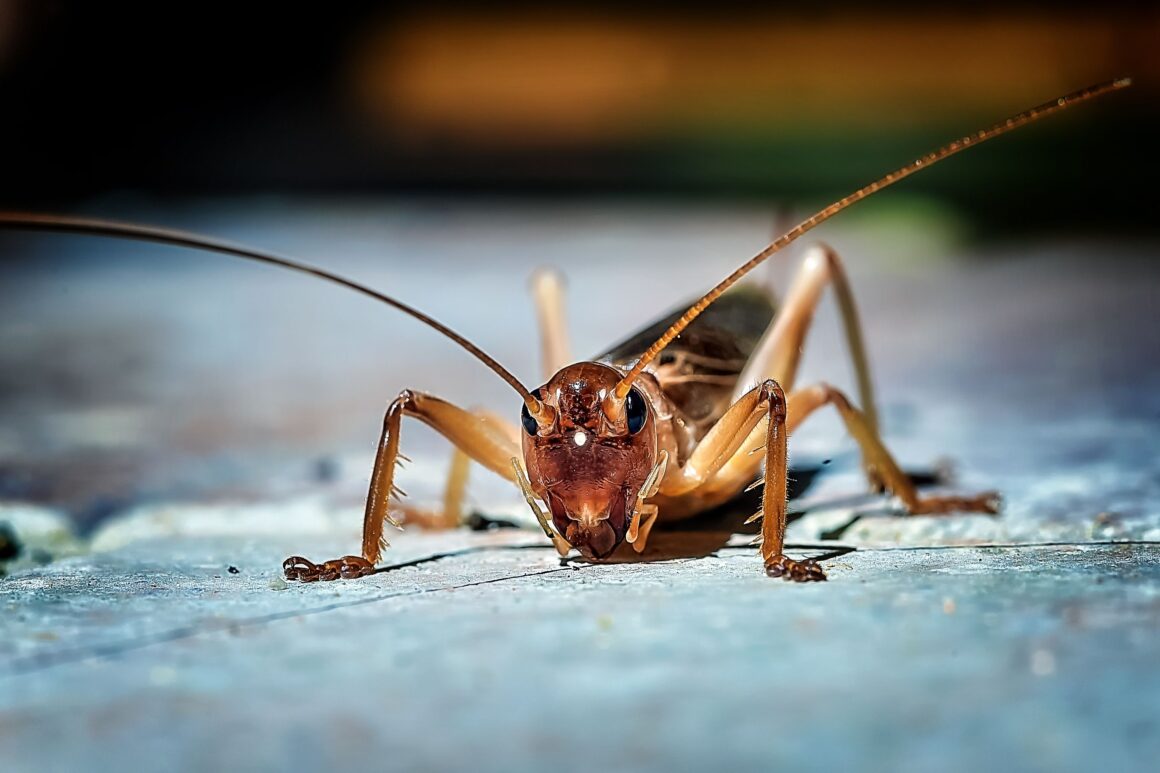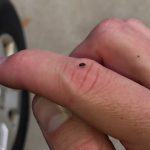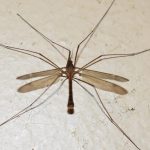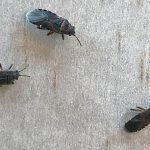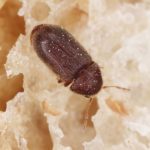Are crickets invading your home? Looking for a safe and non-toxic way to get rid of them? You’ve come to the right place. We’ll be discussing if vinegar kills crickets – and how.
Vinegar has been used for centuries as an insect repellent, cleaner and pesticide. Does it work on crickets too? Yes. Acetic acid, which is found in vinegar, is toxic to many insects – including crickets.
Spray it directly onto the cricket or its habitat, and they will dehydrate and die. It also disrupts their exoskeleton so they can’t move around or feed. Plus, they become more vulnerable to predators or other pest control methods.
So if you’re searching for a natural way to get rid of those pesky crickets, try vinegar. Safe for humans and pets, simple to use – and best of all – it works.
In this blog post we’ll explore the various ways you can kill crickets as well as tips on keeping your house free from these annoying insects. Let’s get started.
The Effectiveness of Vinegar as an Insecticide
Contents
- 1 The Effectiveness of Vinegar as an Insecticide
- 2 How Does Vinegar Work as an Insecticide?
- 3 Is Vinegar Effective Against Crickets?
- 4 Studies on the Effectiveness of Vinegar Against Crickets
- 5 Alternatives to Using Vinegar for Controlling Cricket Populations
- 6 Tips for Preventing a Cricket Infestation
- 7 Conclusion
Vinegar may be the answer. Though it is not the most effective way to kill crickets, it can be used as an effective deterrent.
Vinegar contains acetic acid, which is known to interfere with insect nervous systems and sense of smell. If you spray it around your house or in areas where crickets are likely to enter, it will create an uncomfortable barrier that crickets will try to avoid.
However, it should not be used as a substitute for proper pest control methods; instead, it can help prevent cricket infestations.
To make your vinegar-based repellent even more powerful, try adding essential oils such as peppermint or eucalyptus. Not only will this make your repellent smell nicer, but it will also help discourage crickets from entering your house.
How Does Vinegar Work as an Insecticide?
Vinegar is a powerful insecticide and has been used for centuries to get rid of pesky pests like crickets. But how does it work? The answer lies in its acetic acid content.
When vinegar comes into contact with an insect, it disrupts its nervous system, leading to death.
Additionally, the acetic acid in vinegar damages the exoskeleton of the insect, resulting in dehydration and death.
However, the effectiveness of vinegar as an insecticide depends on several factors such as the concentration of acetic acid in the vinegar, the type of insect, and the size of the insect population.
Too much or too little vinegar can have adverse consequences, so it’s best to use it sparingly and in combination with other pest control measures for optimal results.
Is Vinegar Effective Against Crickets?
Crickets may be small, but they can cause big problems.
If you’re looking for a natural solution to your cricket woes, vinegar may be the answer.
Acetic acid, which is found in vinegar, has been known to interfere with crickets’ navigation system and act as a deterrent. While some people have had success with this method, others have not seen any difference.
It’s important to note that vinegar may not necessarily kill crickets and will only offer temporary relief. As such, it’s best to consider other natural remedies such as diatomaceous earth and essential oils when trying to control cricket populations.
Studies on the Effectiveness of Vinegar Against Crickets
If so, you may have heard that vinegar can be an effective treatment. But does it really work? Let’s explore the science behind using vinegar to get rid of crickets.
Crickets are part of the orthopteran family, which includes grasshoppers and locusts. They have a hard exoskeleton, six legs, and two pairs of wings. They are omnivores, meaning they feed on both plants and animals.
Crickets are known for their distinct chirping sound, which is caused by the male’s rubbing of their wings together to attract females.
Several studies have been conducted to assess the effectiveness of vinegar against crickets. In a study published in the Journal of Economic Entomology, researchers found that undiluted white vinegar directly sprayed on the crickets caused an immediate knockdown effect, rendering them unable to move temporarily.
The study also showed that diluted vinegar solutions were not as effective and only caused a delay in the cricket’s movement.
Another study by the University of Maryland Extension found that vinegar can be used as a deterrent for crickets rather than an exterminator.
They discovered that spraying vinegar around doors and windows or applying a vinegar-soaked cloth to areas where crickets are likely to enter can discourage them from crossing over these barriers.
While vinegar may be helpful in deterring or temporarily incapacitating crickets, it is important to note that it is not a long-term solution. Crickets have a high reproductive rate, and a vinegar solution will not eliminate an infestation entirely.
Alternatives to Using Vinegar for Controlling Cricket Populations
Though white vinegar can be a cost-effective temporary solution, there are other, more suitable options for controlling cricket populations.
Sticky traps are an easy way to catch and trap crickets. Place them in areas where they’re common and dispose of them once they’ve been caught.
Diatomaceous earth is a natural powder made from fossilized remains of tiny aquatic animals that can be deadly to insects like crickets.
Boric acid is also effective in fighting crickets, but it should be used with caution as it is toxic to humans and animals alike.
Essential oils such as peppermint, eucalyptus, and tea tree oil can also help keep crickets away – simply mix a few drops with water and spray it in areas where they’re present.
Finally, sealing cracks and holes around windows, doors, and other entry points will discourage crickets from entering your house in the first place.
Tips for Preventing a Cricket Infestation
Crickets can be a nuisance if they are allowed to infest your home or garden. To avoid an annoying cricket infestation, there are several preventative measures you can take.
First, make sure to seal up any cracks or gaps in your walls, windows, and doors. Crickets love to hide in dark and damp places, so it’s important to keep these areas sealed off. Also be sure that exterior doors have tight-fitting weather stripping to prevent crickets from entering through gaps.
Second, keep your home and surrounding area clean and tidy. Crickets are attracted to clutter and debris, so be sure to remove any piles of newspapers or cardboard boxes that may be lying around.
Additionally, store food and garbage in tightly sealed containers as crickets are attracted to food waste and can quickly infest your kitchen.
Third, remove any standing water around your home as crickets are attracted to damp environments. To avoid attracting crickets with lighting at night time, consider using yellow or sodium vapor lights instead of white lights.
Finally, use natural deterrents such as cedar chips, diatomaceous earth, or essential oils like peppermint or citronella around the perimeter of your house for extra protection against these pesky creatures.
Conclusion
Vinegar is a useful tool in the battle against crickets. Its acetic acid content disrupts their nervous system and interferes with their sense of smell, making it an effective deterrent.
However, it should not be used as a substitute for professional pest control techniques; rather, it can help prevent cricket infestations from occurring.
There are several other natural remedies such as diatomaceous earth and essential oils that may be more effective. Additionally, prevention methods like sealing cracks and crevices or eliminating food sources can help keep cricket populations at bay.
Ultimately, vinegar may provide some relief from crickets, but it’s not a long-term solution.

